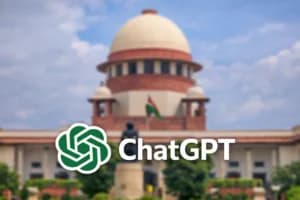In a detailed and emotionally charged verdict, the Kerala High Court on Friday issued a series of mandatory directions to the state government aimed at revamping the juvenile justice machinery. The bench of Chief Justice Nitin Jamdar and Justice Basant Balaji delivered the judgment in a suo motu case clubbed with a public interest petition filed by Bachpan Bachao Andolan, a child rights organisation founded by Nobel laureate Kailash Satyarthi.
The court's focus was clear - to ensure that the state strictly complies with the Supreme Court’s landmark Sampurna Behura directions and the Juvenile Justice (Care and Protection of Children) Act, 2015.
Background
The case stemmed from a Supreme Court directive in Sampurna Behura vs Union of India (2018), which had asked every High Court to initiate suo motu proceedings to monitor the implementation of the Juvenile Justice Act across India. Despite this, the Kerala High Court noted with concern that compliance in the state remained patchy.
The petitioners, including Bachpan Bachao Andolan, highlighted issues such as long-pending vacancies in child protection institutions, inadequate inspections of child care homes, and lapses in rehabilitation of minors. The State’s own counter-affidavit admitted to several gaps, prompting the bench to intervene firmly.
Court's Observations
Justice Basant Balaji, delivering the detailed 70-page judgment, invoked Justice V.R. Krishna Iyer’s words:
"The hallmark of a civilized society lies in how it fulfils its obligation to the young generation."
The bench observed that while Kerala has progressive laws and institutions for child welfare, "the problem lies not in the text of the law, but in its execution." It noted that vacancies in the Kerala State Commission for Protection of Child Rights (KeSCPCR), Juvenile Justice Boards (JJBs), and Child Welfare Committees (CWCs) had hampered their functioning.
On the issue of inspections, the Court remarked,
"The management of Child Care Institutions is extremely important, and inspections cannot be treated as mere bureaucratic formalities."
The judges also pulled up the authorities for delays in framing state-specific Juvenile Justice Model Rules, despite being empowered under Section 110 of the Act.
"Every delay in this regard affects children in need of care and those in conflict with law," the bench cautioned.
Further, the Court expressed disappointment at the slow pace of social audits of child care institutions, terming them "a vital accountability tool." It referenced the Supreme Court’s Re: Exploitation of Children in Orphanages case, which had emphasized that social audits were the best way to ensure transparency and humane care within such institutions.
Decision and Directions
Concluding that "mere enactment of progressive laws cannot guarantee justice to children," the High Court issued a series of time-bound directions. These included:
- Vacancy Filling: The State must fill all vacant posts in the Child Rights Commission within four weeks and begin future recruitment at least four months before a term expires.
- Reports and Monitoring: Annual reports for 2024–25 must be completed within eight weeks, and future reports published by June each year.
- Inspections: The remaining inspections of 737 Child Care Institutions must be finished within three months, with an SOP for annual inspections to be drawn up.
- Judicial Bodies: Reconstitution of CWCs and JJBs to be completed within eight weeks. CWCs must hold sittings at least 21 days a month.
- Probation Officers: All vacancies in the probation department to be filled within four months, with advance recruitment protocols.
- Police Reforms: Each police station must appoint a Child Welfare Officer within four months; SJPUs must be reconstituted under DSP-level supervision.
- Technology Integration: The State must upload all child protection data to the Mission Vatsalya and Track Child portals within three months.
- Social Audit: The State must conduct social audits of every child care institution within six months and file annual reports by the following June.
- Finalising Model Rules: Kerala’s draft Juvenile Justice Model Rules must be finalized and notified within three months.
Finally, the Court placed the responsibility for coordination on the Principal Secretary, Women and Child Development Department, directing all agencies to cooperate.
Case Title: Suo Motu v. The Government of Kerala & Others















